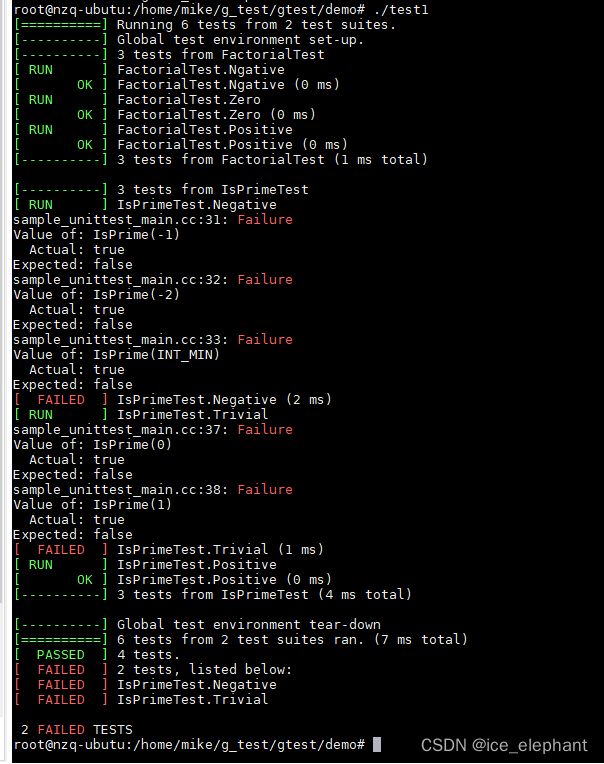- 【Python】一文详细介绍 py格式 文件
高斯小哥
Python基础【高质量合集】python新手入门学习
【Python】一文详细介绍py格式文件个人主页:高斯小哥高质量专栏:Matplotlib之旅:零基础精通数据可视化、Python基础【高质量合集】、PyTorch零基础入门教程希望得到您的订阅和支持~创作高质量博文(平均质量分92+),分享更多关于深度学习、PyTorch、Python领域的优质内容!(希望得到您的关注~)文章目录一、py格式文件简介二、如何创建和编辑py格式文件三、如何运行py
- Android和IOS应用开发-Flutter应用让屏幕在 app 运行期间保持常亮的方法
江上清风山间明月
FlutterandroidiosflutterKeepAlive屏幕常亮wakelock熄屏
文章目录Flutter应用让屏幕在app运行期间保持常亮的方法方法一:使用系统插件方法二:使用Widgets注意事项Flutter应用让屏幕在app运行期间保持常亮的方法在Flutter开发中,可以使用以下两种方法让屏幕在app运行期间保持常亮:方法一:使用系统插件Flutter社区中已经有很多相关插件可供使用,比如wakelock:https://pub.dev/packages/wakeloc
- 微信小程序监听用户经纬度变化
某公司摸鱼前端
微信小程序小程序
一些打卡App需要根据用户的位置来完成打卡那么就需要监听用户位置变化情况:示例://在某个生命周期函数中,如onLoad中onLoad:function(options){//开始监听位置变化wx.startLocationUpdate({success:function(){console.log('开始更新位置');},fail:function(){console.log('开始更新位置失败
- 数据结构奇妙旅程之深入解析快速排序
山间漫步人生路
数据结构排序算法算法
快速排序(QuickSort)是一种高效的排序算法,它使用了分治法的策略来将一个数组排序。其基本思想是选择一个基准元素,通过一趟排序将待排序的数据分割成独立的两部分,其中一部分的所有数据都比基准元素小,另一部分的所有数据都比基准元素大,然后再按此方法对这两部分数据分别进行快速排序,整个排序过程可以递归进行,以此达到整个数据变成有序序列。工作原理选择基准:从待排序的序列中选一个元素作为基准(pivo
- python抓包与解包_Python—网络抓包与解包(pcap、dpkt)
weixin_39691055
python抓包与解包
pcap安装[root@localhost~]#pipinstallpypcap抓包与解包#-*-coding:utf-8-*-importpcap,dpktimportre,threading,requests__black_ip=['103.224.249.123','203.66.1.212']#抓包:param1eth_name网卡名,如:eth0,eth3。param2p_type日志捕
- android 自定义曲线图,Android自定义View——贝赛尔曲线
weixin_39767513
android自定义曲线图
个人博客:haichenyi.com。感谢关注本文针对有一定自定义View的童鞋,最好对贝赛尔曲线有辣么一丢丢了解,不了解也没关系。花5分钟看一下GcsSloop的安卓自定义View进阶-Path之贝塞尔曲线。本文的最终效果图:最终效果图.gif思路首先他是一个只有上半部分的正弦形状的水波纹,很规则。其次,他这个正弦图左右在移动。然后,就是它这个自定义View,上下也在移动,是慢慢增加的最后,优化
- Flink中的SQL Client和SQL Gateway
BigDataMLApplication
flinkflinksqlgateway
Flink中的SQLClient和SQLGateway对比目录定义基本原理适用场景主要区别常用运维命令示例官方链接正文1.定义SQLClient:FlinkSQLClient是一种用于提交和执行FlinkSQL语句的命令行界面或图形界面工具。SQLGateway:FlinkSQLGateway是一个独立的服务,它允许客户端通过RESTfulAPI将SQL查询提交到Flink集群。2.基本原理SQL
- 2022年河南省高等职业教育技能大赛云计算赛项竞赛赛卷(样卷)
忘川_ydy
云计算云计算openstackkubernetesdockerpythonk8sansible
#需要资源(软件包及镜像)或有问题的,可私博主!!!#需要资源(软件包及镜像)或有问题的,可私博主!!!#需要资源(软件包及镜像)或有问题的,可私博主!!!第一部分:私有云任务1私有云服务搭建(10分)使用提供的用户名密码,登录竞赛用的云计算平台,按要求自行使用镜像创建两台云主机,创建完云主机后确保网络正常通信,然后按要求配置服务器。根据提供安装脚本框架,补充脚本完成OpenStack平台的安装搭
- 浪潮 M5系列服务器IPMI无法监控存储RAID卡问题.
Songxwn
硬件服务器服务器运维
简介浪潮的M5代服务器,可能有WebBMC无法查看存储RAID/SAS卡状态的情况,可以通过以下方式修改。修改完成后重启BMC即可生效。ESXiIPMITools使用:https://songxwn.com/ESXi8_IPMI/(Linux也可以直接使用)Linux/ESXiIPMITool下载:https://songxwn.com/file/ipmitoolWindows下载:https:/
- 打印出1-100的奇数 。(C语言)
王多鱼001
C语言c语言算法数据结构
代码:#includeintmain(){for(inti=1;i<101;i++){if(i%2==1){printf("%d,",i);}}return0;}
- 【OpenModelica】4命令行大全
Wumbuk
python开发语言modelica
命令行大全文章目录命令行大全一、SummaryofCommandsfortheInteractiveSessionHandler二、Runningthecompilerfromcommandline一、SummaryofCommandsfortheInteractiveSessionHandler以下是交互式会话处理器中当前可用命令的完整列表。•simulate(modelname):翻译一个名为
- unblock with ‘mysqladmin flush-hosts‘ 解决方法
祈祷平安,加油
数据库常见问题oracle数据库
MySqlHostisblockedbecauseofmanyconnectionerrors;unblockwith'mysqladminflush-hosts'解决方法环境:linux,mysql5.5.21错误:Hostisblockedbecauseofmanyconnectionerrors;unblockwith'mysqladminflush-hosts'原因:同一个ip在短时间内产
- 通俗易懂:MySQL中如何设置只读实例并确保数据一致性?
大龄下岗程序员
mysqljavamysqlspring
在MySQL中设置只读实例主要应用于构建高可用性和扩展性的数据库环境,通常是为了分担读取负载或者用于备份和灾难恢复。以下是创建MySQL只读实例并确保数据一致性的基本步骤:1.创建并配置只读实例-主从复制设置-首先,你需要有一个主数据库实例(Master)负责接收所有的写操作。-创建一个或多个从数据库实例(Slave),并将它们配置为主数据库的复制品。这通常通过设置主从复制(Replication
- LeetCode1047:删除字符串中的所有相邻重复项
一个小猴子`
LeetCode算法数据结构c++leetcode
题目描述给出由小写字母组成的字符串S,重复项删除操作会选择两个相邻且相同的字母,并删除它们。在S上反复执行重复项删除操作,直到无法继续删除。在完成所有重复项删除操作后返回最终的字符串。答案保证唯一。示例:输入:“abbaca”输出:“ca”解释:例如,在“abbaca”中,我们可以删除“bb”由于两字母相邻且相同,这是此时唯一可以执行删除操作的重复项。之后我们得到字符串“aaca”,其中又只有“a
- Mac命令行查找SDK/JDK安装位置
iblade
Linuxmacosjava开发语言
要在命令行中查询AndroidSDKPlatformTools的安装位置,可以使用以下步骤:使用which命令:在命令行中执行以下命令:whichadb这将输出adb命令的安装路径,通常情况下,它会在AndroidSDK的platform-tools目录下。手动查找:如果whichadb没有输出,可以手动查找AndroidSDK的安装位置。通常情况下,AndroidSDK的默认安装路径是在用户的h
- 美团自动配送车2024春季招聘 | 社招专场
美团技术团队
关于美团自动配送团队美团自动配送以自研L4级自动驾驶软硬件技术为核心,与美团即时零售业务结合,形成满足公开道路、校园、社区、工业园区等室外全场景下的自动配送整体解决方案。美团自动配送团队成立于2016年,团队成员来自于Waymo、Cruise、Pony.ai、泛亚等自动驾驶行业头部公司,自动驾驶技术团队博士占比高达30%,依靠视觉、激光等传感器,实时感知预测周围环境,通过高精地图定位和智能决策规划
- 天猫超市优惠获取渠道,天猫超市内部优惠劵领取方法使用教程
氧惠全网优惠
天猫超市是一个不错的购物平台,满足用户所需,基本次日达,很方便的购物平台,那么有人问我,天猫超市优惠获取渠道在哪?怎么能够优惠的购买,今天分享给大家;1、天猫超市优惠券抢好券:天猫超市首页每天可以领取满199减30、满235减35、满299减50、满399减60、满166减30等优惠券,领劵方法复制下条口令打开淘宝进入领劵会场;隐藏神券、实时爆款、天天更新!戳>(CZ9185ZatcdhNADlJ
- 下载Android源码
赛非斯
repoinit-uhttps://mirrors.tuna.tsinghua.edu.cn/git/AOSP/platform/manifest-bandroid-10.0.0_r411.首先下载repo:a)终端运行gitclonegit://codeaurora.org/tools/repo.gitb)mkdir~/binc)拷贝repo到~/bin下面,修改repo权限,chmoda+x~
- 华为OD机试 - 单向链表中间节点(Java & JS & Python & C & C++)
华为OD题库
华为od链表java
须知哈喽,本题库完全免费,收费是为了防止被爬,大家订阅专栏后可以私信联系退款。感谢支持文章目录须知题目描述输出描述解析代码题目描述给定一个单链表L,请编写程序输出L中间结点保存的数据。如果有两个中间结点,则输出第二个中间结点保存的数据。例如:给定L为1→7→5,则输出应该为7;给定L为1→2→3→4,则输出应该为3;输入描述每个输入包含1个测试用例。每个测试用例:第一行给出链表首结点的地址、结点总
- php 把一个数组分成有n个元素的二维数组的算法
风清扬-独孤九剑
phpphp算法
一、第一种解法0){$columns_map[$position]++;//这个地方格外注意,$position与$columns比较$position=($position<$columns-1)?++$position:0;$array_length--;}foreach($columns_mapas$val){$newarray[]=array_splice($array,0,$val);}
- llama.cpp 编译安装@Ubuntu
skywalk8163
项目实践人工智能llamaubuntulinux人工智能
在Kylin和Ubuntu编译llama.cpp,具体参考:llama模型c语言推理@FreeBSD-CSDN博客现在代码并编译:gitclonehttps://github.com/ggerganov/llama.cppcdllama.cppmkdirbuildcdbuildcmake..cmake--build.--configRelease#可选安装makeinstall#或可选添加路径ex
- python 推导式(派生、衍生)
sanduo112
人工智能pythonwindows开发语言
python推导式一、推导式(派生、衍生)1.Python推导式是一种独特的数据处理方式,可以从一个数据序列构建另一个新的数据序列的结构体。2.列表(list)推导式3.字典(dict)推导式4.集合(set)推导式5.元组(tuple)推导式二、代码概述一、推导式(派生、衍生)1.Python推导式是一种独特的数据处理方式,可以从一个数据序列构建另一个新的数据序列的结构体。Python支持各种数
- SpringMVC设置全局异常处理器
水岸齐天
javaspring
文章目录背景分析使用@ControllerAdvice(@RestControllerAdvice)+@ExceptionHandler实现全局异常全局异常处理-多个处理器匹配顺序存在一个类中存在不同的类中对于过滤器和拦截器中的异常,有两种思路可以考虑背景在项目中我们有需求做一个全局异常处理,来规范所有出去的异常信息。参考:官方文档分析首先ControllerAdvice(RestControll
- uni-app实现 步骤条
夏夏的码农
uni-app
实现如图样式html部分代码如下投资期限与收益0?'active':'default'">募集开始1?'active':'default'">募集结束2?'active':'default'">产品成立3?'active':'default'">产品到期0?'active-step1':'step1'">1?'active-st
- 【算法分析与设计】去除重复字母
五敷有你
算法分析与设计javajavascript开发语言算法数据结构
个人主页:五敷有你系列专栏:算法分析与设计⛺️稳中求进,晒太阳题目给你一个字符串s,请你去除字符串中重复的字母,使得每个字母只出现一次。需保证返回结果的字典序最小(要求不能打乱其他字符的相对位置)。示例示例1:输入:s="bcabc"输出:"abc"示例2:输入:s="cbacdcbc"输出:"acdb"思路贪心+单调栈实现【字符串删除一个字符使其字典序最小的贪心策略】:对于两个长度相同的字符串,
- 以前开发MFC界面如何快速转成QT界面
广州视觉芯软件有限公司
mfcqtc++
将MFC界面快速转换为Qt界面可能需要进行一些手动工作,因为MFC和Qt是两个不同的界面框架,它们具有不同的设计和实现原理。但是,以下步骤可以帮助你快速进行转换:创建一个新的Qt项目:使用QtCreator创建一个新的Qt项目。分析MFC界面:仔细分析你的MFC界面,包括窗口、对话框、控件等的布局、样式和行为。重新设计界面:使用Qt的可视化设计器重新设计界面。在QtCreator的设计器中,你可以
- Django之Debug篇
菜鸟之编程
Djangodjangopython后端
一、DebugToolBar基本使用1.1、概述Django框架的调试工具栏使用django-debug-toolbar库,是一组可配置的面板,显示有关当前请求/响应的各种调试信息,点击时,显示有关面板内容的更多详细信息。官方文档:DjangoDebugToolbar—DjangoDebugToolbar4.3.0documentation1.2、安装pipinstalldjango-debug-
- 1.计算机处理器架构+嵌入式处理器架构及知识
vv 啊
arm-linux学习linux系统架构
目录一:x86-64处理器架构二:Intel80386处理器(i386)1.i3862.i686三:嵌入式Linux知识:1.MinGW2.GNU计划2.1GNU工具链概述此次只分享英特尔和ADM处理器有关于x86的架构,至于嵌入式处理器架构请查看https://en.wikipedia.org/wiki/List_of_ARM_processors一:x86-64处理器架构x86-64,也称为x
- 数据挖掘|数据预处理|基于Python的数据标准化方法
皖山文武
数据挖掘数据建模与分析python数据挖掘开发语言
基于Python的数据标准化方法1.z-score方法2.极差标准化方法3.最大绝对值标准化方法在数据分析之前,通常需要先将数据标准化(Standardization),利用标准化后的数据进行数据分析,以避免属性之间不同度量和取值范围差异造成数据对分析结果的影响。1.z-score方法Z-score方法是基于原始数据的均值和标准差来进行数据标准化的,处理后的数据均值为0,方差为1,符合标准正态分布
- c++中如何判断变量的数据类型,并输出
xnrbjy
c++开发语言
C++中如果想要判断变量的数据类型,可以使用typeid运算符。该运算符返回一个std::type_info类型的对象,可以使用name()方法获取其名称从而确定变量的类型,例如:#include#includeusingnamespacestd;intmain(){inta=123;floatb=3.14;boolc=true;chard='A';stringe="HelloWorld";cou
- Js函数返回值
_wy_
jsreturn
一、返回控制与函数结果,语法为:return 表达式;作用: 结束函数执行,返回调用函数,而且把表达式的值作为函数的结果 二、返回控制语法为:return;作用: 结束函数执行,返回调用函数,而且把undefined作为函数的结果 在大多数情况下,为事件处理函数返回false,可以防止默认的事件行为.例如,默认情况下点击一个<a>元素,页面会跳转到该元素href属性
- MySQL 的 char 与 varchar
bylijinnan
mysql
今天发现,create table 时,MySQL 4.1有时会把 char 自动转换成 varchar
测试举例:
CREATE TABLE `varcharLessThan4` (
`lastName` varchar(3)
) ;
mysql> desc varcharLessThan4;
+----------+---------+------+-
- Quartz——TriggerListener和JobListener
eksliang
TriggerListenerJobListenerquartz
转载请出自出处:http://eksliang.iteye.com/blog/2208624 一.概述
listener是一个监听器对象,用于监听scheduler中发生的事件,然后执行相应的操作;你可能已经猜到了,TriggerListeners接受与trigger相关的事件,JobListeners接受与jobs相关的事件。
二.JobListener监听器
j
- oracle层次查询
18289753290
oracle;层次查询;树查询
.oracle层次查询(connect by)
oracle的emp表中包含了一列mgr指出谁是雇员的经理,由于经理也是雇员,所以经理的信息也存储在emp表中。这样emp表就是一个自引用表,表中的mgr列是一个自引用列,它指向emp表中的empno列,mgr表示一个员工的管理者,
select empno,mgr,ename,sal from e
- 通过反射把map中的属性赋值到实体类bean对象中
酷的飞上天空
javaee泛型类型转换
使用过struts2后感觉最方便的就是这个框架能自动把表单的参数赋值到action里面的对象中
但现在主要使用Spring框架的MVC,虽然也有@ModelAttribute可以使用但是明显感觉不方便。
好吧,那就自己再造一个轮子吧。
原理都知道,就是利用反射进行字段的赋值,下面贴代码
主要类如下:
import java.lang.reflect.Field;
imp
- SAP HANA数据存储:传统硬盘的瓶颈问题
蓝儿唯美
HANA
SAPHANA平台有各种各样的应用场景,这也意味着客户的实施方法有许多种选择,关键是如何挑选最适合他们需求的实施方案。
在 《Implementing SAP HANA》这本书中,介绍了SAP平台在现实场景中的运作原理,并给出了实施建议和成功案例供参考。本系列文章节选自《Implementing SAP HANA》,介绍了行存储和列存储的各自特点,以及SAP HANA的数据存储方式如何提升空间压
- Java Socket 多线程实现文件传输
随便小屋
javasocket
高级操作系统作业,让用Socket实现文件传输,有些代码也是在网上找的,写的不好,如果大家能用就用上。
客户端类:
package edu.logic.client;
import java.io.BufferedInputStream;
import java.io.Buffered
- java初学者路径
aijuans
java
学习Java有没有什么捷径?要想学好Java,首先要知道Java的大致分类。自从Sun推出Java以来,就力图使之无所不包,所以Java发展到现在,按应用来分主要分为三大块:J2SE,J2ME和J2EE,这也就是Sun ONE(Open Net Environment)体系。J2SE就是Java2的标准版,主要用于桌面应用软件的编程;J2ME主要应用于嵌入是系统开发,如手机和PDA的编程;J2EE
- APP推广
aoyouzi
APP推广
一,免费篇
1,APP推荐类网站自主推荐
最美应用、酷安网、DEMO8、木蚂蚁发现频道等,如果产品独特新颖,还能获取最美应用的评测推荐。PS:推荐简单。只要产品有趣好玩,用户会自主分享传播。例如足迹APP在最美应用推荐一次,几天用户暴增将服务器击垮。
2,各大应用商店首发合作
老实盯着排期,多给应用市场官方负责人献殷勤。
3,论坛贴吧推广
百度知道,百度贴吧,猫扑论坛,天涯社区,豆瓣(
- JSP转发与重定向
百合不是茶
jspservletJava Webjsp转发
在servlet和jsp中我们经常需要请求,这时就需要用到转发和重定向;
转发包括;forward和include
例子;forwrad转发; 将请求装法给reg.html页面
关键代码;
req.getRequestDispatcher("reg.html
- web.xml之jsp-config
bijian1013
javaweb.xmlservletjsp-config
1.作用:主要用于设定JSP页面的相关配置。
2.常见定义:
<jsp-config>
<taglib>
<taglib-uri>URI(定义TLD文件的URI,JSP页面的tablib命令可以经由此URI获取到TLD文件)</tablib-uri>
<taglib-location>
TLD文件所在的位置
- JSF2.2 ViewScoped Using CDI
sunjing
CDIJSF 2.2ViewScoped
JSF 2.0 introduced annotation @ViewScoped; A bean annotated with this scope maintained its state as long as the user stays on the same view(reloads or navigation - no intervening views). One problem w
- 【分布式数据一致性二】Zookeeper数据读写一致性
bit1129
zookeeper
很多文档说Zookeeper是强一致性保证,事实不然。关于一致性模型请参考http://bit1129.iteye.com/blog/2155336
Zookeeper的数据同步协议
Zookeeper采用称为Quorum Based Protocol的数据同步协议。假如Zookeeper集群有N台Zookeeper服务器(N通常取奇数,3台能够满足数据可靠性同时
- Java开发笔记
白糖_
java开发
1、Map<key,value>的remove方法只能识别相同类型的key值
Map<Integer,String> map = new HashMap<Integer,String>();
map.put(1,"a");
map.put(2,"b");
map.put(3,"c"
- 图片黑色阴影
bozch
图片
.event{ padding:0; width:460px; min-width: 460px; border:0px solid #e4e4e4; height: 350px; min-heig
- 编程之美-饮料供货-动态规划
bylijinnan
动态规划
import java.util.Arrays;
import java.util.Random;
public class BeverageSupply {
/**
* 编程之美 饮料供货
* 设Opt(V’,i)表示从i到n-1种饮料中,总容量为V’的方案中,满意度之和的最大值。
* 那么递归式就应该是:Opt(V’,i)=max{ k * Hi+Op
- ajax大参数(大数据)提交性能分析
chenbowen00
WebAjax框架浏览器prototype
近期在项目中发现如下一个问题
项目中有个提交现场事件的功能,该功能主要是在web客户端保存现场数据(主要有截屏,终端日志等信息)然后提交到服务器上方便我们分析定位问题。客户在使用该功能的过程中反应点击提交后反应很慢,大概要等10到20秒的时间浏览器才能操作,期间页面不响应事件。
根据客户描述分析了下的代码流程,很简单,主要通过OCX控件截屏,在将前端的日志等文件使用OCX控件打包,在将之转换为
- [宇宙与天文]在太空采矿,在太空建造
comsci
我们在太空进行工业活动...但是不太可能把太空工业产品又运回到地面上进行加工,而一般是在哪里开采,就在哪里加工,太空的微重力环境,可能会使我们的工业产品的制造尺度非常巨大....
地球上制造的最大工业机器是超级油轮和航空母舰,再大些就会遇到困难了,但是在空间船坞中,制造的最大工业机器,可能就没
- ORACLE中CONSTRAINT的四对属性
daizj
oracleCONSTRAINT
ORACLE中CONSTRAINT的四对属性
summary:在data migrate时,某些表的约束总是困扰着我们,让我们的migratet举步维艰,如何利用约束本身的属性来处理这些问题呢?本文详细介绍了约束的四对属性: Deferrable/not deferrable, Deferred/immediate, enalbe/disable, validate/novalidate,以及如
- Gradle入门教程
dengkane
gradle
一、寻找gradle的历程
一开始的时候,我们只有一个工程,所有要用到的jar包都放到工程目录下面,时间长了,工程越来越大,使用到的jar包也越来越多,难以理解jar之间的依赖关系。再后来我们把旧的工程拆分到不同的工程里,靠ide来管理工程之间的依赖关系,各工程下的jar包依赖是杂乱的。一段时间后,我们发现用ide来管理项程很不方便,比如不方便脱离ide自动构建,于是我们写自己的ant脚本。再后
- C语言简单循环示例
dcj3sjt126com
c
# include <stdio.h>
int main(void)
{
int i;
int count = 0;
int sum = 0;
float avg;
for (i=1; i<=100; i++)
{
if (i%2==0)
{
count++;
sum += i;
}
}
avg
- presentModalViewController 的动画效果
dcj3sjt126com
controller
系统自带(四种效果):
presentModalViewController模态的动画效果设置:
[cpp]
view plain
copy
UIViewController *detailViewController = [[UIViewController al
- java 二分查找
shuizhaosi888
二分查找java二分查找
需求:在排好顺序的一串数字中,找到数字T
一般解法:从左到右扫描数据,其运行花费线性时间O(N)。然而这个算法并没有用到该表已经排序的事实。
/**
*
* @param array
* 顺序数组
* @param t
* 要查找对象
* @return
*/
public stati
- Spring Security(07)——缓存UserDetails
234390216
ehcache缓存Spring Security
Spring Security提供了一个实现了可以缓存UserDetails的UserDetailsService实现类,CachingUserDetailsService。该类的构造接收一个用于真正加载UserDetails的UserDetailsService实现类。当需要加载UserDetails时,其首先会从缓存中获取,如果缓存中没
- Dozer 深层次复制
jayluns
VOmavenpo
最近在做项目上遇到了一些小问题,因为架构在做设计的时候web前段展示用到了vo层,而在后台进行与数据库层操作的时候用到的是Po层。这样在业务层返回vo到控制层,每一次都需要从po-->转化到vo层,用到BeanUtils.copyProperties(source, target)只能复制简单的属性,因为实体类都配置了hibernate那些关联关系,所以它满足不了现在的需求,但后发现还有个很
- CSS规范整理(摘自懒人图库)
a409435341
htmlUIcss浏览器
刚没事闲着在网上瞎逛,找了一篇CSS规范整理,粗略看了一下后还蛮有一定的道理,并自问是否有这样的规范,这也是初入前端开发的人一个很好的规范吧。
一、文件规范
1、文件均归档至约定的目录中。
具体要求通过豆瓣的CSS规范进行讲解:
所有的CSS分为两大类:通用类和业务类。通用的CSS文件,放在如下目录中:
基本样式库 /css/core
- C++动态链接库创建与使用
你不认识的休道人
C++dll
一、创建动态链接库
1.新建工程test中选择”MFC [dll]”dll类型选择第二项"Regular DLL With MFC shared linked",完成
2.在test.h中添加
extern “C” 返回类型 _declspec(dllexport)函数名(参数列表);
3.在test.cpp中最后写
extern “C” 返回类型 _decls
- Android代码混淆之ProGuard
rensanning
ProGuard
Android应用的Java代码,通过反编译apk文件(dex2jar、apktool)很容易得到源代码,所以在release版本的apk中一定要混淆一下一些关键的Java源码。
ProGuard是一个开源的Java代码混淆器(obfuscation)。ADT r8开始它被默认集成到了Android SDK中。
官网:
http://proguard.sourceforge.net/
- 程序员在编程中遇到的奇葩弱智问题
tomcat_oracle
jquery编程ide
现在收集一下:
排名不分先后,按照发言顺序来的。
1、Jquery插件一个通用函数一直报错,尤其是很明显是存在的函数,很有可能就是你没有引入jquery。。。或者版本不对
2、调试半天没变化:不在同一个文件中调试。这个很可怕,我们很多时候会备份好几个项目,改完发现改错了。有个群友说的好: 在汤匙
- 解决maven-dependency-plugin (goals "copy-dependencies","unpack") is not supported
xp9802
dependency
解决办法:在plugins之前添加如下pluginManagement,二者前后顺序如下:
[html]
view plain
copy
<build>
<pluginManagement

